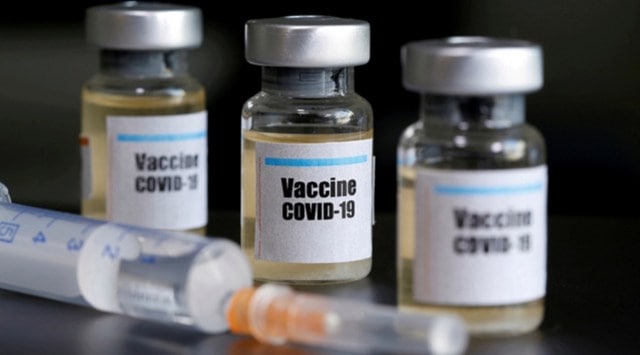American pharma company Pfizer said on Monday that during the first interim analysis from phase 3 clinical trials, its vaccine candidate had been found to be more than 90 per cent effective in preventing Covid-19 in participants without evidence of prior SARS-CoV-2 infection.
Pfizer and its partner, the German biotech company BioNTech, said the analysis of phase 3 trial data of the m-RNA vaccine candidate by an external independent Data Monitoring Committee (DMC) “has not reported any serious safety concerns”.

However, the independent expert committee has recommended that the study “continue to collect additional safety and efficacy data as planned”, the company underlined. “The data will be discussed with regulatory authorities worldwide,” Pfizer said in a release on Monday.
The release did not provide details on the specifics of the immune response, adverse reactions, and age-specific efficacy of the vaccine candidate. “Pfizer and BioNTech plan to submit data from the full phase 3 trial for scientific peer review publication,” the release said.
While Monday’s announcement is not scientifically conclusive evidence on the safety and efficacy of the vaccine candidate, Pfizer has become the first firm to release promising late-stage trial data of a potential vaccine for Covid-19.
“This is a first but critical step in our work to deliver a safe and effective vaccine,” chairman and CEO Dr Albert Bourla said. As of Monday, over 50 million people had been infected by the novel coronavirus worldwide, and 1.25 million had died.
The phase 3 clinical trial of the Pfizer-BioNTech candidate, BNT162b2, began on July 27 and enrolled 43,538 participants, 38,955 of whom had received a second dose by November 8. The candidate is a single nucleoside-modified messenger RNA (modRNA) vaccine, which is made of a short segment of genetic material — the messenger RNA — which provides instructions for a human cell to make a harmless version of a target protein, in this case the spike protein of SARS-CoV-2, in order to activate an immune response.
Story continues below this ad
Pfizer’s announcement on the first interim analysis comes days before the company plans to submit safety and efficacy data from the trial to the American regulator, the United States Food and Drug Administration (FDA) seeking emergency use authorisation “soon after the required safety milestone is achieved, which is currently expected to occur in the third week of November”.
Pfizer said on Monday that following “discussion” with USFDA, the company had “recently elected to drop the 32-case interim analysis and conduct the first interim analysis at a minimum of 62 cases”.
“Upon the conclusion of those discussions, the evaluable case count reached 94 and the DMC performed its first analysis on all cases. The case split between vaccinated individuals and those who received the placebo indicates a vaccine efficacy rate above 90%, at 7 days after the second dose.
“This means that protection is achieved 28 days after the initiation of the vaccination, which consists of a 2-dose schedule,” the company said.
Story continues below this ad
The clinical trial will continue through to “final analysis at 164 confirmed cases in order to collect further data and characterise the vaccine candidate’s performance against other study endpoints”, the company said.
Bourla hailed the trial data as representing “a great day for science and humanity”.
“With today’s news, we are a significant step closer to providing people around the world with a much-needed breakthrough to help bring an end to this global health crisis. We look forward to sharing additional efficacy and safety data generated from thousands of participants in the coming weeks,” he said.
Last month, Bourla had said in an open letter that Pfizer was likely to submit the two-month safety data on half of the trial participants to the regulator for emergency use authorisation in the third week of November.

































